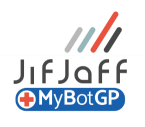Primary care practices face increasing financial pressures in today’s challenging healthcare landscape. Embracing automation has emerged as a vital solution to optimise operations, reduce operating costs, and ensure the continued profitability of practices. In this blog post, we will explore how automation in primary care serves as a crucial support system, enabling practices to stay financially viable while effectively supporting patients during these difficult times.
Streamlining Operational Efficiency:
Automation in primary care revolutionises operational processes by automating repetitive and time-consuming tasks. Administrative workflows, appointment scheduling, billing and coding, filing of negative bloods, recalls, e-consult, and Health Checks are some areas where automation can be implemented. By automating these tasks, practices can streamline their operations, reducing the need for manual intervention and the associated costs. Staff members can redirect their focus to more valuable activities, such as patient care and engagement.
Cost Reduction Through Efficiency:
By eliminating repetitive, time-consuming processes, automation significantly reduces costs. The precision and accuracy of automated systems minimise the risk of errors, incorrect coding, and costly administrative oversights. Additionally, automation ensures optimal resource utilisation, preventing overstaffing or inefficient allocation of resources, resulting in cost savings for the practice.
Patient Support in Difficult Times:
Using automation in primary care reduces costs and ensures that practices can continue providing essential support to patients, especially during challenging times. With automation handling administrative tasks, healthcare professionals can dedicate more time and attention to patient care, delivering high-quality services. Patients benefit from reduced waiting times, improved appointment scheduling, and streamlined communication, enhancing patient satisfaction and loyalty.
The Safety of Automation:
While reducing operating costs, it is crucial to highlight the safety aspect of automation in primary care. Automation systems operate within strict guidelines and protocols, ensuring compliance with regulatory standards and patient privacy protection. Comprehensive audits and controls provide a transparent record of system activities, guaranteeing accountability and mitigating risks.
Automation is vital for primary care practices to reduce operating costs and ensure financial sustainability in today’s challenging healthcare landscape. By streamlining operational efficiency, automating administrative tasks, and enhancing financial management, practices can optimise resource allocation and improve revenue cycle management. Additionally, automation enables healthcare professionals to focus on delivering high-quality patient care and support, fostering patient satisfaction and loyalty. Embracing automation is a strategic step towards a financially viable future, ensuring that primary care practices can support patients effectively during these difficult times.
JifJaff offers a fully managed and scalable solution for NHS Primary Care. Our team of experts handle all processes from implementation to maintenance, allowing you to focus on what matters most – your business! Our solution grows with you from practice, or large ICS with complex needs, we adapt to meet your requirements. With our comprehensive solutions, you can save time, reduce costs, and streamline your operations knowing you are fully supported.
